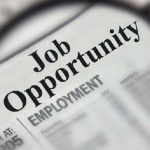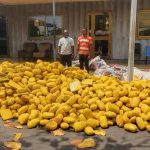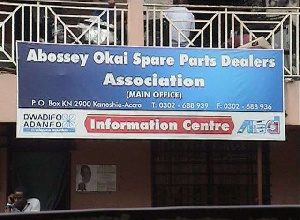It is not always about what you learned in school. It is about passion and the desire to do something challenging and different. This was what drove a young graduate to switch from pursuing a career in law to baking cakes. Read how things unfolded as she shares her story with B&FT’s Inspiring Startups.
Akua Afreh-Nuamah was born in Akwatia in the Eastern Region of Ghana. She is a product of St. Roses Senior High and the University of Ghana, where she studied English and French. As part of the university curriculum for her programme, students are expected to take a year-abroad programme in order to be fluent in the language they are studying; so, Akua went to France. It was in France that she fell in love with cake-making.
How it all began
While in France, she came across a French lady in her hostel who baked cakes. The French lady on one occasion brought samples of red velvet cake for Akua and her roommate to taste and give their feedback. She was amazed to learn the cakes were baked right under their roof, as she initially thought it wouldn’t be that simple to make red velvet cakes. With excitement, she asked the French lady to teach her how to do it— and she did.
So, once in a while she tried her hands at it during birthdays and parties organised by friends. When, she came back to Ghana to complete her degree, she thought about starting a business – but not cake-making, as she treated it as a mere hobby. However, a friend drew her attention to the fact it could be a very good business if she took it seriously. This turned out to be the right advice she needed at the time, so she enrolled in a training programme that taught how to decorate cakes and package them. She took pictures of the samples made during the training and sent them her friends.
Unknown to her, her friends uploaded the pictures onto social media – and the next thing to happen was that she started receiving calls from people she didn’t know asking about the price of the cakes. So, this pushed her to go commercial, even though she wasn’t really ready to do so at the time.
Having no stated capital for the business, Akua used her weekly pocket money of GH¢60 given by her father to start the business. When she got orders, she would sacrifice her pocket money and produce the order and get it back from selling the cake. As time passed, she saved enough money to buy a portable electric oven and took it to campus to bake the cakes; thus saving her time and money by not travelling home to bake them as was initially practiced.
I turned down a masters’ programme
When Akua was done with national service, she wanted to further her education in France and obtain a masters’ degree, thinking that was what her parents wanted. So, even though she had started the business, she was ready to close it and go to study abroad then come back.
But her father, to her utmost surprise, advised her against it. He encouraged Akua to rather focus on growing the business if she felt it was viable. That conversation was everything she needed, as she realized obtaining a second degree wasn’t, after all, her parents’ wish for her.
At this point, she was ready to go into full-time cake-making. But Akua is someone who doesn’t rush into something without having any education or training in it. With financial assistance from her father, she enrolled in courses at different culinary institutes to acquire certificates in baking cakes and as well as pastries, and desserts. After acquiring the certificate, her father once again assisted her with capital to purchase commercial ovens and other necessary tools and machines to go into fulltime baking. She rebranded her business with the name La Pêche Cuisine and started serious business. She does all kinds of cakes — for weddings, birthdays, anniversaries, among others. Today, a business she started with just GHC60 has grown to into receiving more than 30 orders monthly, and employing three people.
Her customers know her as the lady with a lot of patience, as she tolerates all the frustrations they take her through when they place orders. She is quick to apologise and get things fixed as soon as possible if a client expresses any discontent with an order. This excellent customer service skill always wins her clients over, and they keep referring her to others.
Vision
In the next five years, La Pêche Cuisine wants to expand to own a cake shop at a prominent location in Accra and a fast food pub. Recently, she opened another branch to deliver lunch to offices—the beginning of her goal to add a food pub to her business.
Challenges
Lack of adequate logistics is a major challenge. Currently, she outsources a dispatch service to deliver the cakes and lunch; and this comes with some inconveniences. Most of the dispatch services do not arrive in time to deliver the products to clients at the promised time, and it comes as a dent to her company’s image if the dispatch delays.
To address this, she needs to get her own dispatch services – and that requires a lot of money which her business cannot provide now.
Again, another challenge is high cost of production. Prices of ingredients for the cakes keep rising, and this affects her revenue as she is not always able to transfer costs to clients.
The role of education
For Akua, getting the right education has been everything that has made her business grow quickly. She maintains that had she not taken courses in bakery, she would have made a lot of costly mistakes right from the beginning. Again, education has helped her to see the value of advertising her products on social media, and this has impacted positively on her business.
How important is the economic empowerment of women?
“The world is evolving, and I think it is important for women to have a means of livelihood and erase the old mentality that they have to stay home and cook.”
How government must assist entrepreneurs
“I think the Ministry of Business Development should do more than they are currently doing. There should be funds set up purposely for startups to access. It must not necessarily be on the basis of competition where a few can be assisted. There should be a system whereby startups can easily get funding from government to grow their business.”
Advice to young entrepreneurs
“The journey is a hard task. People will try to discourage you, but do not let anything discourage you; push forward and try to achieve your goal, no matter how hard it is.”
















